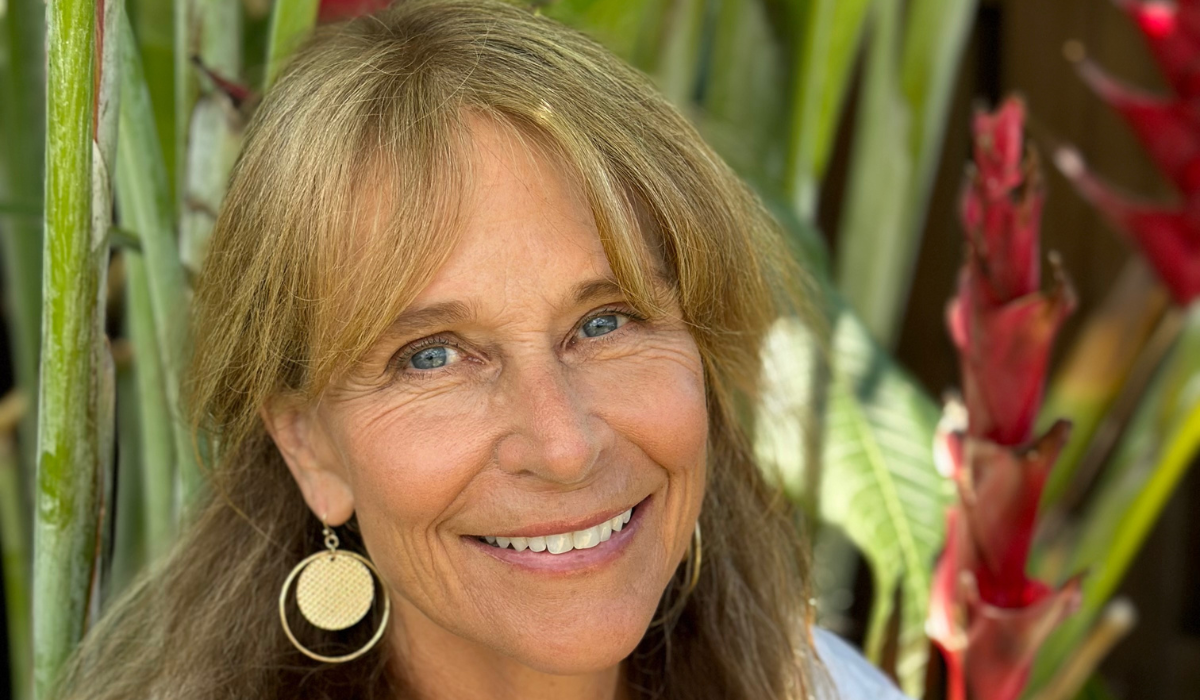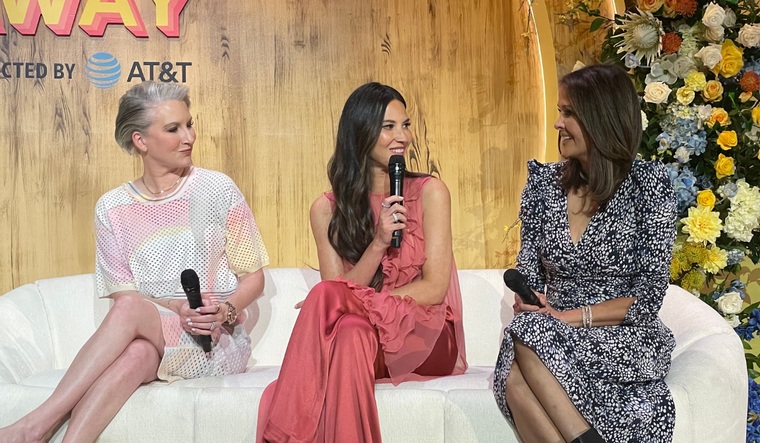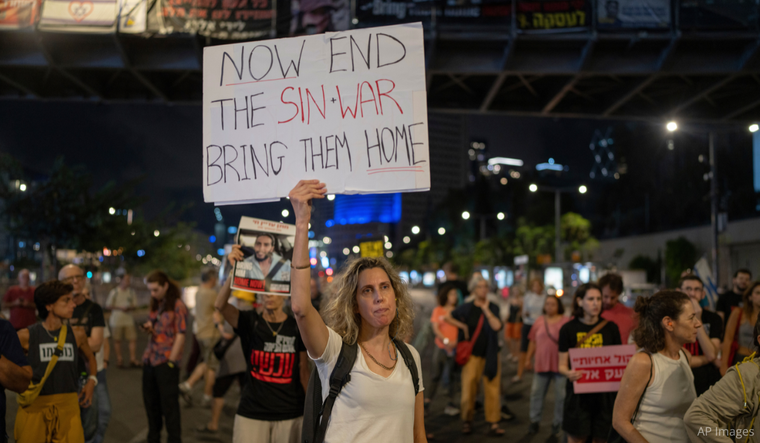On This Anniversary of 9/11, Death Doula Diane Button Shares 7 Truths to Help Us Face Whatever We’re Grieving
September 11th marks a date that is forever etched in our hearts and minds. We all remember exactly where we were when we heard the news when our nation lost 2977 beautiful souls in one tragic morning.
Now, twenty-two years later, thousands of people continue to grieve the loss of their parent, partner, child, relative, colleague, or friend. Twenty-two years later, even those of us not directly touched by that tragedy remember the ache in our hearts that day. There is no “getting over” that fateful day and the grief we carry.
Grief changes us. There was the day before a significant loss, and then there is the day your life changed forever.
Grief hurts. It’s usually an unwelcome companion. It can be lonely.
As a death doula, I’ve learned there is no right way or wrong way to experience it, so if you are grieving, go easy on yourself. It’s a personal journey, and one that most of us try to avoid even talking about. Our avoidance often makes grieving worse at a time when support, community, and being heard are so important.
We grieve for many reasons. We grieve because of a death, loss of a relationship, an accident or natural disaster, difficult family dynamics, the loss of a pet, social injustice, lack of inclusion, loss of a job, moving to a new city, generational trauma, loss of innocence, aging, loss of health and energy—and on and on.
Sometimes we grieve everyday losses, like losing your wallet or needing reading glasses. I’ve come to believe that the smaller losses are here to prepare us for the bigger losses that usually come over course of a normal lifespan. Some losses are bigger ones that don’t make headlines, but they turn our worlds upside down and shatter our hearts into a million tiny pieces. These dates may mean nothing to us collectively, but they are forever etched into the story of our individual lives.
May 12th, 1996, is one of those dates for me. It seems like forever ago, yet year after year that date leaps out at me as a giant reminder that grief is hard, life is unpredictable, and all we truly have is the moment we are living now.
In 1996, my husband, Mark, was happily married to another woman, Ronnie Lew. They had recently discovered she was pregnant…with triplets. Early May was spent in pure bliss, planning for the future, enjoying time together before the children were born, and being grateful for the gift of this beautiful family they had always dreamed of.
One spring morning, Ronnie developed an excruciating headache at an appointment. She called Mark to come and get her. He arrived to a frenzy of ambulances and ran up just in time to kiss her forehead as the paramedics wheeled her into an ambulance. Very soon after arriving at the hospital, he was shocked to hear she was being rushed to surgery for a brain aneurysm.
Sadly, by the next morning the doctors gave Mark the most devastating news of his life. Ronnie was brain dead.
Friends gathered to say goodbye to Ronnie, to support Mark, and to call around the country to see if any doctor could save the triplets. But it was impossible; they were too small.
Mark had to make the unimaginable decision to take Ronnie and the triplets off life support. With Mark holding her hand, Ronnie Lew Button and the triplets died on May 12th, 1996 at 3:05 p.m. It was the one day that Ronnie had wanted to celebrate most: Mother’s Day.
Then came grief. Raw, relentless, gut-wrenching, overpowering grief.
The unwelcome companion.
The visitor who never leaves.
Mark cried for years. Sometimes he still cries. For a long time, he wished he could stop crying. But now it brings him joy—the tears a reminder of the love, the life, and the memories he and Ronnie shared. An unexpected moment may trigger a memory, which then triggers the tears to flow. Mark makes space for the tears. Together, we make space for the tears. This has been part of the path towards healing. We’ve learned to welcome grief as a companion in our relationship, finding ways to embrace sadness and joy at the same time—honoring both our grief story and our love story.
Do you have a grief story? Is there a moment in time you will never forget, or a date forever etched into your heart? If so, you know that sometimes the pain stays raw and tender for what seems like eternity.
Working with people facing death means grief is always in the room. It might be anticipatory grief over impending losses, the heartbreaking losses of autonomy and independence, or the deep sadness of losing loved ones and having to say goodbye. I will never forget the day one of my clients looked me in the eye after his wife died and said, “How can someone so small leave a hole so big?”
That’s what grief does. It leaves a big, gaping hole right in the heart. It’s our bodies natural response to meaningful loss, and it is painful. One client summed it up best by simply saying, “Grief sucks.” There are no warm and fuzzy words to say and nothing anyone can do to take away the constant ache in someone’s broken heart. We mean well. We try, but often our words come off as insensitive and out of touch. Perhaps with grief, there are no words.
So, what do we do with this unwelcome emotion, both as the one grieving and the one supporting someone grieving? Is there such a thing as “healthy grief” and, if so, what does it look like? Is it possible to invite grief into our lives—to even get to a place where we embrace the sadness and the heartbreak as part of our human story? Maybe it is about having the courage to show up, sit with someone, and acknowledge together that grief just sucks.
I’ve sat at the bedside of hundreds of dying people, and walked a hundred miles or more with those who are struggling with sadness, loneliness, and devastating grief after losing someone, or something, they love. These are seven truths I know about grief:
Grief is always attached to love.
Without love, there would be no grief.
We choose love, but grief chooses us.
Sometimes grief stays for a brief time, and sometimes it stays for a lifetime. Either way, when it is present, it is a constant companion.
There is no guidebook for grief.
If you’re grieving, don’t let people tell you that you need to “get over” your grief, that you will feel better in a year, that you will be happy again soon, that time heals all wounds, or that everything happens for a reason. Don’t let anyone tell you it is mandatory to go through the stages of grief or that there is any pattern or timeline to grief.
We all grieve in our own ways, in our own time, and no one has the recipe for making grief disappear. Some people cannot wait until their grief subsides. Mark says he never wants to “get over” the loss of Ronnie, but he did look forward to the day the grief became easier to carry… easier to live with.
We are not taught how to grieve.
We’ve learned to say we are “fine” even when our heart has been torn in half. What if we began to really share our feelings? Let sadness in. Let sorrow in. Let heartache, pain, and uncontrollable tears into the room. All the emotions are welcome when someone is truly given permission to grieve. Meet the grieving person where they are and embrace their emotions.
Anger? Normal.
Isolating? Normal.
Indecisiveness, regrets, hopelessness, fear? All normal.
If you are currently living through the early stages of grief, you may be surviving moment by moment, or breath by breath, and there might not be an ounce of desire for you to even get out of bed. And that’s OK, too.
Just showing up says more than words could ever say.
Sometimes simply showing up for someone who’s grieving is the hardest part, but it means the most. Let’s try to support each other by speaking about the loss and sharing memories. Invite your grieving friend to dinner. Even if they decide not to join you, they will feel good about being included.
When offering to support someone who is grieving, be specific. Saying something like, “Let me know if you need anything” is too vague for someone in deep grief. It feels like work for them to even know what they need. Instead, ask them if you can pick up their kids from school, do their laundry, take them to an appointment, or anything you know they may not have the energy to do themselves.
Our culture does not often model healthy grief.
We say “you’ll get through it” as if it is a problem to solve. We say “stay strong” when the last thing a person who is broken open from grief needs to do is to stay strong. We think we can “fix” grief by encouraging people to “move on” so the sadness can conveniently be brushed under the nearest rug. We can do better. Like sadness, grief is one of the many emotions that makes us who we are as human beings.
Grief always coexists with love, but it can also coexist with hope.
I don’t recommend looking for unrealistic hope when you are reeling from a tragedy. Look for everyday hope. Comfort and hope can be found in the most unusual places. A smile. A heart-shaped rock. Sometimes being in the present moment, and seeing the way we come together in community, especially during hard times, can bring us hope for the future. Sometimes hope lives in the far corners, where we don’t often look when we are heartbroken.
Hope is the possibility of finding our way towards something new, something we are not seeing right now. Hope does not take away grief. It does not heal pain and suffering. Hope just has a gentle way of softening us and offering a slight glimmer of goodness in our broken world.
My hope is that we practice compassion and turn towards each other’s suffering, rather than running away. May we be willing to not only embrace love, but to also embrace grief, and honor the fullness of this journey called life.
In those moments, when we show up with our whole heart, even something that hurts can feel a bit like love and remind us of our shared humanity.
Please note that we may receive affiliate commissions from the sales of linked products.




